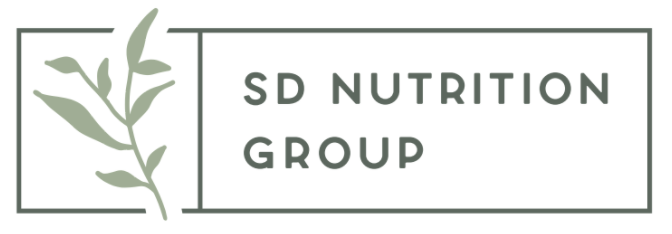Is The Food Police Bullying You?
When was the last time you thought about how you think about food?
A quick Google search tells us that we make approximately 200 decisions about food every day. That’s a lot of brain power! Have you ever stopped to think about what those decisions sound like in your mind? If they sound like:
I shouldn’t eat anything after 6pm.
I should avoid carbs.
If I eat breakfast, it will just make me eat more during the day.
I can’t eat that food. It’s too processed.
I shouldn’t get the side of fries.
Better not have dessert. I didn’t exercise today.
I’m hungry now but I have to wait until noon to eat lunch. No snacks allowed.
…then you likely have a case of the Food Police. The Food Police voice is like an annoying hall monitor. It keeps track of all the unreasonable rules that diet culture has created, and then makes you feel shameful and guilty for your food choices. The Food Police acts like a judge that determines if you’re being “good” or “bad” with your eating. What’s worse is that with each new diet or new nutrition fad you see, the Food Police absorbs this new info and adds even more rules to follow.
Sounds exhausting right?
Just like you can practice challenging forbidden foods, you can practice challenging the Food Police. This involves saying “no” to this way of thinking about food and shifting the negative voices into helpful, nurturing ones. Here are some examples of shifting negative thinking:
Dichotomous or binary thinking (black and white thinking):
Example: a day of eating is “good” or “bad” based on your food choices; needing to eat all the cookies now so they’ll be none left for later.
Solution: Go for the gray! Let go of the idea that you need to eat in an all-or-nothing way. There is no such thing as perfect eating.
Absolutist thinking:
Example: I must eat perfectly or something bad will happen.
Solution: Use words such as can, is okay, and may. Give yourself permission to eat with your words: “I can eat whenever I feel like it”. “It’s okay to eat the foods I enjoy”.
Catastrophic thinking:
Example: If I let myself eat ice cream, I’ll never stop.
Solution: Replace these thoughts with ones that are more positive and accurate. It may take some time to be able to eat a food like ice cream in a way that feels less chaotic, but with time and practice you’ll make peace with that food and will be able to stop eating when it feels good to you.
Pessimistic thinking (the cup is half empty):
Examples: All I ate was sweets this week. I can’t do anything right.
Solution: View the cup as half full. Instead of “this week was terrible”, try “I had some progress this week. I ate more sweets than I wanted to, but I had lots of other foods too”.
Linear thinking:
Examples: The faster I do it, the more successful I’ll be; I must reach my goal by x date or I’ve failed.
Solution: Process thinking focuses on continual change and learning, not just the end result. Accept that there will be ups and downs. It’s all a practice in getting to know yourself and your body better, day by day. Progress is not linear!
If you’re feeling overwhelmed by the food police or by thinking about challenging these negative thoughts, you’re not alone. A therapist or Intuitive Eating informed registered dietitian can help you to identify and challenge your own personal food police voice. It takes a lot of practice to change our old patterns of thinking, but with time and compassionate self-awareness, you can kick the food police to the curb.
